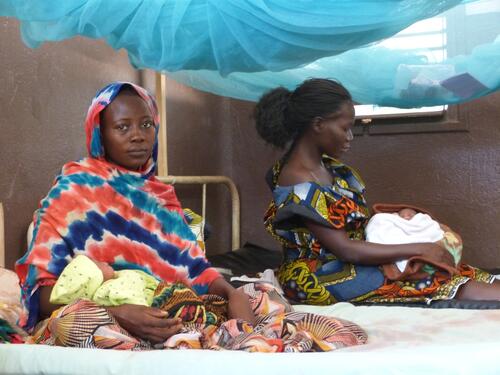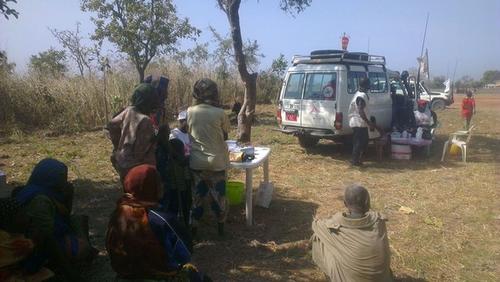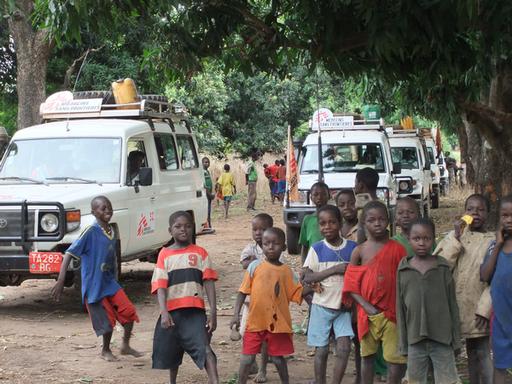Violence has swept through Central African Republic (CAR) the last few days as rebel coalition Seleka has entered and taken over several towns. Médecins Sans Frontières (MSF) is continuing its work in the towns of Ndélé, Kabo and Batangafo, and are currently setting up supplementary activities in areas that are likely to be worst affected.
Batangfo
On Thursday 20 December, Seleka entered the town of Batangafo, where MSF is supporting the main hospital.
The previous day, after the rebels announced their intention to move through Batangafo to Bouca, the Central African military forces (FACA), the police and public authorities fled the town. Much of the population, frightened by the threat of an attack, also left Batangafo to seek refuge in the bush. The rebels entered 24 hours later.
MSF is still working in the hospital in Batangfo. The number of consultations dropped from 193 on Wednesday to 38 on Thursday, when Seleka entered the town.
"For the last ten years the population has endured the regular presence of and attacks from armed men in this region. The people get frightened and flee rapidly into the bush," says Enoch Nodl-ya, MSF anesthetist nurse at Batangafo hospital.
“As a result, many women give birth in the bush without any help. The most sick or wounded hesitate to seek medical care, fearful of violence in the populated areas. Once the violence stops, the patients come in, often in the advanced stage of their diseases.”
Kabo
In the early morning of Wednesday 19 December, the rebel coalition entered the town of Kabo, where MSF is also supporting a hospital. The rebel troops took the town and left the same day. There were shootings and explosions for about two hours. Some violence against the civilian population, including a rape and significant looting, also occurred. Residents who fled into the bush are now cautiously beginning to return.
In Kabo hospital, MSF is still running its services; our team there has treated four wounded patients and provided medical and psychological care to the patient who suffered sexual violence.
Bria and Kaga Bandoro
MSF is planning to send a team to Bria, which was attacked on 16 December. The threat of an attack on Kaga Bandoro prompted MSF to send an emergency team to provide surgical support in the hospital there. The team of four – a surgeon, two nurses, a field coordinator and a logistician – arrived in Kaga Bandoro on 19 December.
Ndélé and the north
Since 10 December, after the takeover of the town of Ndélé, other areas in the northern part of CAR have been attacked by the coalition of various rebel groups. This has led to some heavy fighting with the FACA. The FACA is now supported by the Chadian army, which entered the country on request of the president of CAR in order to stop the rebel movements. Residents have fled, abandoning their homes and jobs, to seek refuge in the bush. Most of the qualified health personnel have fled to Bangui, leaving the population in an even more precarious health situation.
The situation in Ndélé has calmed down somewhat following fighting between the rebels and the FACA on 10 December. However, things are still tense and residents have not returned. MSF initially evacuated some of its staff but has returned to Ndélé and is carrying out its work in the hospital.
A mobile clinic has also been set up to serve around 128 displaced families at the airstrip just outside town. So far that mobile clinic has carried out more than 300 consultations; but few have come to the hospital, presumably due to fear of aggression by the armed people in the town.
MSF has been working in the CAR since 1997 and operates seven programmes in five of the country’s seven health districts. In collaboration with the Ministry of Health, MSF supports seven hospitals and about 38 health posts, and activities range from basic healthcare, to HIV and TB care, neglected diseases, nutrition programmes, vaccination, surgery and other specialist healthcare. Malaria is often the main focus of MSF’s programmes.






